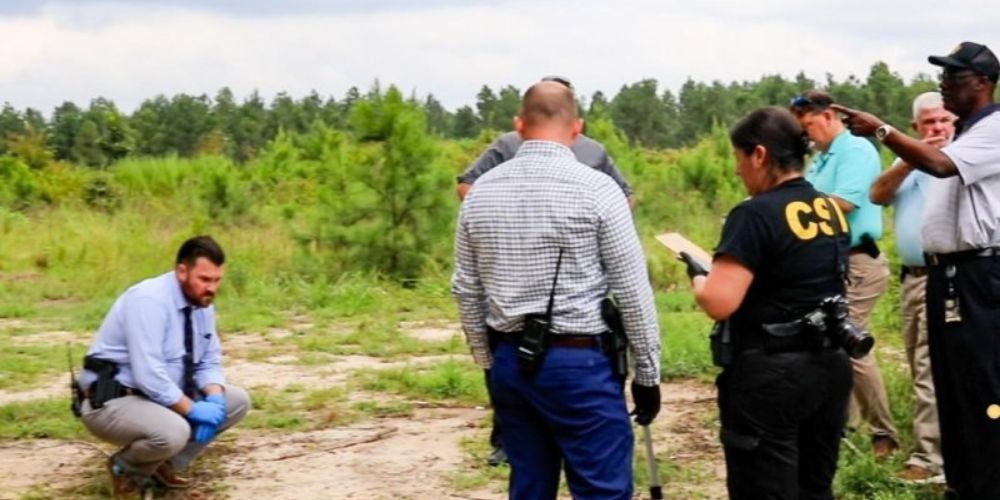In 2025, the concept of familial marriage—particularly between cousins—continues to spark curiosity, debate, and occasional misunderstanding. Across the United States, each state defines its own rules regarding cousin marriage, leading to a mosaic of regulations that can be confusing for many. In this comprehensive, in-depth guide, we explore the legal status of cousin marriage in California. We’ll unravel the historical background, dissect current statutes, examine public opinion, and compare California’s position with that of other states and countries—all without relying on citations but instead presenting clear, articulate, as-is contextual information.
California is known for its progressive approach to marriage and family law. But when it comes to cousins marrying, what does 2025’s legal terrain look like? Whether you’re personally affected, contemplating marriage, conducting genealogical research, or simply curious, this article offers everything you need to know about cousin marriage in California—including practical tips, statistics, cultural nuances, and more.
Background and Context
Cousin Marriage: A Historical Overview
-
Global perspective: In many parts of the world, including regions of South Asia, the Middle East, and West Africa, marriage between first cousins is common and culturally accepted.
-
U.S. history: The United States historically had more permissive cousin marriage laws, with nearly half of all states allowing it in the 19th century. Over time, about half of the states introduced restrictions.
-
California’s legacy: Since its early years, California has allowed first cousin marriage. The practice has existed quietly alongside other marriage types.
Why Laws Vary Among States
-
Health concerns: One driving factor behind restricting cousin marriage has been the perceived risk of genetic disorders among offspring. While first-cousin unions do elevate the risk somewhat, it remains relatively low statistically.
-
Cultural norms and prejudice: Some bans on cousin marriage stem more from social stigma than science, influenced by regional traditions or moralizing attitudes.
-
Uniformity and simplicity: States no longer performing cousin marriages often cite legal clarity—the fewer relationship categories allowed, the simpler the regulatory framework.
Current California Law on Cousin Marriage
Legal Status in 2025
California remains one of the minority of U.S. states where first-cousin marriage is legal. This includes:
-
First cousins
-
First cousins once removed
-
Second cousins
There are no restrictions based solely on cousin relationship. Proof of identity, marriage license, age, and mutual consent remain the only prerequisites.
Comparison with Other States
Though fewer than half the states permit it, California is joined by around 20 others—such as New York, Massachusetts, and Illinois—in allowing cousin marriages. The rest of the country prohibits first-cousin unions, with occasional exceptions for genetic counseling or special court dispensation.
Age and Consent Requirements
California maintains standard marriage conditions:
-
Both individuals must be at least 18 years old.
-
Orages 16–17 require parental consent plus a judicial order.
-
No coercion; both must give voluntary, informed consent.
No Genetic Testing Mandate
Unlike some countries that require genetic counseling for consanguineous couples, California imposes no legal requirement for such testing before granting a marriage license between cousins.
The Science Behind Cousin Marriage and Offspring Health
Genetic Risks in Perspective
-
Baseline risk: For couples with no close genetic relation, the chance of congenital anomalies is roughly 2–3%.
-
Cousin marriage risk: This can increase to approximately 4–6%. Yes, there’s an elevated risk—but the absolute increase remains modest.
-
Comparison: Higher risk scenarios include teenage pregnancy, smoking during pregnancy, or advanced maternal age—all of which have broader prevalence.
Contemporary Context
-
Modern healthcare advantages: Prenatal screening, neonatal care, and genetic counseling can mitigate and manage risks effectively.
-
Family history matters: Authorities and medical professionals may advise cousins to discuss family medical records—but legally, there is no mandate for such consultation in California.
Social & Demographic Considerations
Cultural Communities
California’s rich tapestry of cultures includes sizable South Asian, Middle Eastern, and Hispanic communities where cousin marriage forms part of traditional practice.
-
South Asians: Sociological data indicates a higher prevalence—estimated 10–20% in certain urban Californian enclaves—compared to <1% in the general population.
-
Middle Eastern or North African Americans: Similarly, some families maintain long-standing acceptance of cousin marriage.
-
Second-generation adaptation: As assimilation occurs, attitudes increasingly vary. Surveys show younger generations tend to trend away from it—but traditional values endure in many family circles.
Trends & Statistics
-
Declining prevalence: Over past decades, cousin marriage rates have gradually declined across the U.S. This echoes global urbanization trends and intermingling cultures.
-
California’s continuity: Despite the decline, cousin marriages persist—particularly when cultural or religious beliefs support them.
Legal Processes and Practicalities
Obtaining the Marriage License: A Step-by-Step Overview
-
Visit County Clerk: Couples—cousins included—must attend the local county clerk’s office.
-
Submit application: Basic details and government-issued ID (e.g., driver’s license, passport) are required.
-
Pay fees: Typically ranging from $80–$100, depending on county.
-
Wait period: Two-day waiting period in most counties (waivable for out-of-state couples who had licenses prior to moving).
-
Licensed marriage celebrant: Civil or religious ceremony may be conducted by judge, minister, or other authorized figure.
-
Recording: Official marriage document is filed with the county.
Throughout, no questions about genetic counseling, family tree, or consanguinity will be asked.
Out-of-State Moves
If cousins marry legally in California and move elsewhere:
-
Their marriage is typically recognized under the Full Faith and Credit Clause, unless invalid by strong public policy (rare).
-
E.g., if cousins marry legally in Los Angeles and move to Alabama (which bans cousin marriages), Alabama would generally recognize the California marriage for legal purposes like taxes or spousal benefits.
Ethical, Cultural, and Legal Debates
Health vs. Autonomy
-
Opponents argue cousin marriage elevates genetic risk and should be restricted or prohibited for public health.
-
Supporters counter: Low risk, informed consent, and personal choice justify legality.
Religious Liberties & Cultural Identity
Prohibiting cousin marriage can infringe on religious freedom and cultural rights. For many communities, marrying a cousin strengthens familial bonds, preserves traditions, and safeguards property or business interests.
Stigma & Misconceptions
Despite legal permissibility, cousin marriage often carries stigma. Studies show:
-
Many Californians mistakenly assume it’s illegal.
-
Media portrayal and social embarrassment factor into refusal or concealment, even when it’s 100% lawful.
Pros and Cons of the California Policy
Advantages
-
Respects personal freedom: Adults can marry their cousin just as they can marry anyone else.
-
Cultural sensitivity: Acknowledges California’s diversity.
-
Continuity: Provides clear, longstanding precedent.
Disadvantages & Criticisms
-
Persistent health risk: Though minor, risk is non-zero.
-
Perceived inconsistency: Critics point out that sibling marriage is banned, but cousin marriage allowed—some find this incoherent.
-
Public confusion: Even in 2025, many Californians are unaware cousins can marry legally.
Cousin Marriage in the Wider U.S. and Global Context
U.S. at a Glance
-
Legal states (≈20): California, New York, Illinois, and more. No requirement to declare or prove cousin relation.
-
Conditional states (≈10): Allow marriage only after genetic counseling or when sisters are infertile, etc.
-
Prohibitive states (≈20): Flat ban on first-cousin marriage.
International Context
-
Common globally: Countries in South Asia, the Middle East, North Africa. Rates often exceed 20 % in some communities.
-
Prohibitive or discouraged: Much of Europe, Southeast Asia. Many countries do not criminalize but social stigma remains strong.
-
UK vs. California: While cousin marriage is legal in England, there is no overt censorship—but media coverage often leaps on “incest” myths without nuance.
Personal Considerations If You’re a Cousin Couple
When to Consider Genetic Counseling
-
If there is a family history of genetic disorders.
-
If you and your cousin want a deep understanding of potential outcomes.
While not mandated, voluntary counseling can provide reassurance and guidance.
Planning for Parenthood
Prenatal care, improved neonatal care, and early screening help manage risks, making cousin marriage outcomes largely positive.
Navigating Disapproval
-
Family and friends: Reactions vary. Clear communication, education, and empathy are key.
-
Legal documentation: Be ready to clarify legal status, especially in places unfamiliar with cousin marriage laws.
-
Crossing state lines: Your California license grants nationwide recognition—be prepared to explain if questioned.
Myths vs. Facts
| Myth | Reality |
|---|---|
| “Cousin marriage is illegal in California.” | False – it’s entirely legal for first cousins to marry. |
| “Babies from cousin marriages always have defects.” | No – while risk is elevated, with modern care outcomes are generally healthy. |
| “It’s incestuous and immoral.” | Many cultures accept it; “incest” legal definitions exclude cousins. |
| “You’ll banished if you marry your cousin.” | Not so—while some disapproval may arise, many families offer acceptance. |
What the Future May Hold
Legislative Harmony or Change?
There is no active push in California to restrict cousin marriage. The state seems content maintaining existing law. But medical advancements or societal shifts could prompt future reevaluation.
Changing Demographics & Cultural Identities
Younger Californian generations tend to intermarry outside traditional family bounds. Still, cousin marriage is likely to persist where culturally important—especially in immigrant families.
Technological Advances
As genetic screening evolves, the longstanding argument against cousin marriage on health grounds weakens. Personalized genomics may fully eliminate most risks, blunting policy resistance.
Key Takeaways
-
Legal status: In California (2025), first-cousin marriage is fully legal—no restrictions, no exceptions.
-
Health impact: Elevated but modest risk; prenatal care can substantially mitigate it.
-
Cultural norms: Accepted within many cultural communities; still stigmatized by others.
-
Nationwide recognition: A California cousin marriage is honored across the U.S. through the Full Faith and Credit Clause.
-
No genetic mandates: Couples may choose counseling but are not legally required to undergo testing.
-
Balancing act: California legalizes cousin marriage while normalizing informed, voluntary decision-making.
Advice for Prospective Cousin Couples
-
Understand the law: Nope—not illegal. But be clear on your rights and obligations.
-
Explore genetic counseling: Recommended but optional; empowers you with accurate health data.
-
Proactive communication: Address stigma and answer questions with openness.
-
Legal documentation: Bring a valid California marriage license when hiking across state boundaries or applying for benefits.
-
Community support: Find and connect with others who’ve navigated cousin marriage—they can provide emotional guidance, advice, and companionship.
Conclusion
In 2025, California stands firm in its stance: marrying a cousin is not only legal—it’s a personal freedom protected by the state’s comprehensive marriage laws. While cousin unions carry a slightly higher health risk, modern medicine and responsible planning neutralize most concerns. California embraces its role as a multicultural mosaic, allowing cousin marriage alongside other forms of legal unions without prejudice or policy barriers.
So, to answer the question succinctly: No, it is not illegal to marry your cousin in California in 2025. Whether you choose to marry your cousin, or simply want clarity on the topic, this state remains a place that upholds both cultural diversity and individual autonomy.











Leave a Comment